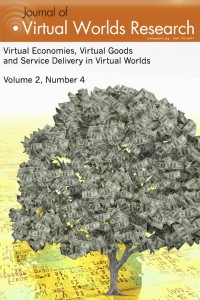All four parts of the BBC docuseries “The Virtual Revolution” have been completed, and the series would serve as good educational material for any person interested in providing a historical analysis and political economic critique to a discussion about what the internet is and what role it has played, is playing and will play in shaping the world. Over four episodes the docuseries covered topics of how the internet’s emergence and rise has impacted culture, politics, economics and even the fundamentals of humanity itself.
However, the tone of the docuseries is decidedly less positive than negative, focusing on criticizing the technology, the people who create it, and the people who use it. The angle of the argument is the same as many media effects arguments, regardless if they come from positivistic quantitative scholars or humanistic qualitative scholars. Largely the docuseries explores how the internet technology, and those behind it, have impacted us, and continue to impact us, with foci on the worrisome and fearful impacts that have been (the dotcom boom & bust), are being (internet addiction), and could be (loss of privacy). There is also some (sometimes covert) admonition of the users of the internet and the WWW for not paying attention to these impacts and how they have come to be.
Across this discussion of impacts, there is little discussion for the agency of the users who are actively seeking out and making choices about their online activities. There is some recognition, such as in the discussion of politics, of the benefits of the WWW, the interconnectedness of humanity, and the speed at which such interconnections facilitate data transfer. However, a large part of the argument elides over human agency and the sense-making individuals do when they engage with these technologies as parts of their everyday lives. There appears to be more of an assumption of the passive media effects (i.e. hypodermic needle, magic bullet) that media studies, for the past 50 years, has attempted to combat by adding in (even if poorly conceived and applied) human agency.
A question I have is how much of this slant taken by the docuseries is because of the scholar making the argument, Dr. Aleks Krotski, or the desires of the producers/distributors of the series, the BBC, to produce a series focusing on the sensational negative impacts of the internet in an attempt to insure viewership in a crowded mediasphere.
Whatever way causation runs in the answer to that question, you can judge for yourself the information quality provided in this docuseries that, again, would be a useful supplement to any educator wishing to discuss the nature and foundation of the WWW to their students who are so intimately engaged with it, even if, as Dr. Krotski asserts, they have no real understanding of just with whom they are going to bed. Or, perhaps this docuseries can be useful to provide the counterpoint to all those students and/or users who would only wish to discuss the benefits of being online as they see it. Either way, I believe the docuseries can be a good elicitation of discussion, as I myself engaged in dialogue with it as I watched it.
You can find information for the series at the website http://www.bbc.co.uk/virtualrevolution/.




Recent Comments